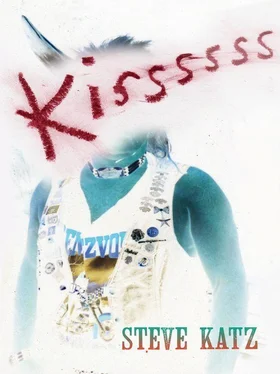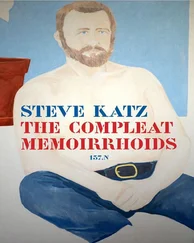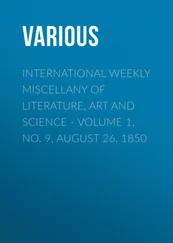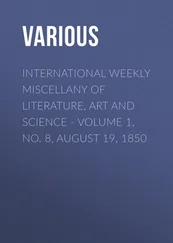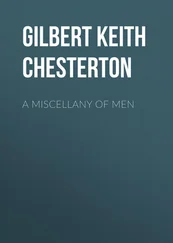
AGNES
(the auto-autobiography)
the protocols of the martyrs of fashion a tale of glamour, family values, and cannibalism
(Please note: all the events described below are actual. Only the names have been changed to protect the somnolent. Any resemblance to persons living or dead is purely sentimental.)
Eukan Severe was a dutiful son. He neither understood nor condoned the rebellious posturings of his sister, Dojie Resoft. She was sixteen, almost seventeen, two years older than himself. He hoped he might get to understand her better as he reached her age. They lived in a comfortable, fading, split-level house in an old suburb of the town of Monisantaca, at the north end of the lush Plinach valley, in the westernmost reaches of the Necsgreems province. The town is bisected by the Maslygdnow river fed by runoff from the snowy slopes of the Bysbu Kleebrey volcano. The river is less than four emrafs wide at this point, but quite deep. Further south it widens, enriched by snow melt off the Blimclecledie range. There it joins the mighty Leinvojeeseph, usually called The Line. Along the banks of this mighty river the people of the plains cultivate and defend their dreulasis crops, the mildly narcotic tuberous staple they learned to grow from the Etatreh peoples. These are original inhabitants, who survive only in secluded enclaves, and still exert their influence despite campaigns to wipe them out, through neglect, if not through slaughter. The Line broadens over the plains, with many branches and culs-de-sac that make up the waterways that lace the urban sprawl of Slegeslona. Further south the river dives deep under a parched expanse of desert, to seep up again after many miles, forming the steamy bog the old people call Sgronts Respute. Then it gathers again to meander the Ildrew Libly rain forest, until it flows into the sea through the fertile delta on which Yinlaw Sted is built.
We present this brief topography only to give you a picture of the scale of the adventure that awaited Eukan as a result of his obsession, since age twelve, with building a boat in the manner of the Etatreh people, a small boat designed to travel this river. This, and the urging of his sister who feared for his life, started Eukan on an adventure well beyond his years. Dojie felt she had to defend her brother against their parents, who she could tell were about to enter their first period of voracity. This is a common affliction that comes at least once to every married couple. At a certain point in their relationship they feel compelled to devour their oldest son. They can't control this, and many who have suffered by their successes explain to the commission that monitors this behavior that there was no way they could stop themselves. This period in a marriage is called pünkscheit. Some who marry young and bear their first son at a young age put themselves in danger because the kid might have already reached the age of seventeen, or eighteen, and be physically powerful, and aware of what was happening, and try to dispose of his progenitors with his fists, elbows, knees, or with his clenac jectorp , a sacramental saber he inherits from his maternal grandfather when he passes his sixteenth birthday. Although there is an old statute on the books, criminalizing pünksheit , this is never prosecuted with much vigor. Except for the one powerless commission, made up mostly of scientists, the community more or less ignores the practice. After all, the people reason, abortion is illegal. We can't make everything illegal. And they rationalize further that in this case the boy is absorbed back into the flesh of its parents, who often conceive another boy, and that boy is frequently an improvement; in fact, the school rosters and other such lists accounting for attendance, register a big R next to the name of a boy so disappeared, R for Reabsorbed.
Eukan was too young, Dojie told herself, to slush out what was going on, and because of his sweet nature, he wasn't inclined to oppose the will of their parents. Dojie had already overheard their parents engage in the re/amorous conversations that precede pünkscheit. She knows all about it because her friend, Nonawi Erryd, who had lost her brother, Verri Hoxnepi, to their parents' voracity, told her about all the warning signs. Nonawi loved her brother, an older one who taught her how to dance, and how to do many drashy things, like stick a skewer through her neck, and she didn't want Dojie to suffer a similar loss. Parents were a problem, drooped and gruelly, and neither girl ever wanted to become one ever.
“So where did your brother go now?” insisted Yerml Perset, Dojie's mother. “Where did you say?”
“I didn't say anything,” Dojie replied curtly. “What makes you think I should know anything about where he goes?” She was cleaning her lateral action skates. She had just bought this new pair of Glasoud Rollers at Chamiel's, and she loved them more than anything. The feeling of sideways skating was pure drash.
“He's never around any more. He used to help me with the housework all the time.” Her mother took the wine glasses out of the dishwasher, and held them up to the light. “You're the only one, practically, who talks to him any more. You'd think he didn't even know he had a mom and dad. And we love him, just as we did when he was a little baby. We love him from his sweet little feet, through his bellybutton, to the tip of his nose.”
“Yeah, right.” Another sure sign of pünkscheit —Nonawi had told her — was the conceptual reinfantilization of the boy, followed often by the demented logic that interpreted the devouring as a reabsorption and reformation of the kid's substance into something more compatible with the parents' original wishes. Sick. Was there no one sweeter than Eukan? What about him could they ever want to change? This was even sicker, Dojie thought, than the postpartum dream some women have where they eat their babies back into their wombs. It was sick. In general, life was sick. All she wanted to do was side-skate down along the river and meet her friends. At least they were friends.
Her mother read her mind.
“Before you go out, young lady.” Dojie retreated from putting on her skates because she knew what her mother was going to say. “You fold the rest of your laundry and put it away, and it wouldn't hurt for you to clean up your room a little. It looks like a twister hit.”
“I like it the way it is.”
“Like some kind of muck-artist's studio?”
Dojie put down her skates and squeezed past her mother to go into the laundry room. Sometimes obedience was the path of least resistance. Yerml grabbed her by her shoulders and planted a kiss on her cheek. “Sorry if I'm short with you, sweety. I just worry about Eukan. Can't you just tell us where he goes? We've hardly seen him for three days.”
Dojie recoiled. A kiss from her mother was too much affection. “No. I said I've got nothing to tell you. I don't know anything.”
“Please. This isn't like him.”
“I don't know where he is, and even if I did I would not tell you.”
“Why, sweety? I'm his mom.”
“Right. Pünkscheit , plain and simple.”
“That…! Do you believe that old story?”
Of course, her mother was denying it. “It's not an old story, mom,” Dojie sang.
Dojie wasn't lying. She actually didn't know where her brother was, but she did know he had gone into the mountains to escape and think things over, and she wasn't going to tell the progenitors that. He decided this was a good time to see if he could find the high valley where the last of the Tanoke trees grew. The disappearance of these trees is another sad story of exploitation of natural resources, and wasting of a valuable and beautiful species. At one time the whole northern range was sheltered in the grace of these unique trees. They grow up to a hundred and forty feet in height, and produce only two broad leaves at the very top, with a seedpod growing from a spike between them. The leaves are tough and resilient, at the same time they are light and buoyant. When sliced across their breadth they exude an opalescent juice that dries to a powder varying in hue from rose-pink to aquamarine, and that is iridescent in a certain angle of light. This powder at one time became a cosmetic rage in Monisantaca, and when it invaded the huge, sophisticated market of Slegeslona the demand became so great that greed encouraged the hurried and careless harvesting of these leaves. By the time the fad had passed, most of the trees were dead. When in the old times the Etatreh peoples harvested the leaves, to construct their sturdy boats, they always waited till the right time for the tree, when the seed pod was fully mature, and they cut the leaves at a precise moment, just before the tree was ready to launch its pod. A moment after the launch the leaves dropped to the ground useless and spent, retaining none of their valuable qualities, and the tree went through a period of dormancy, before it produced its new leaves. The Etatrehs knew there was this safe period, when it was right to take the leaves, without ruining the tree. They assigned one of themselves to watch each tree they were going to harvest, and with this care they almost never killed one; but if by some mistake they did, they performed a ritual of remorse, an incantation of regret. The tree was part of the whole envelope of their lives, and therefore part of their flesh.
Читать дальше
